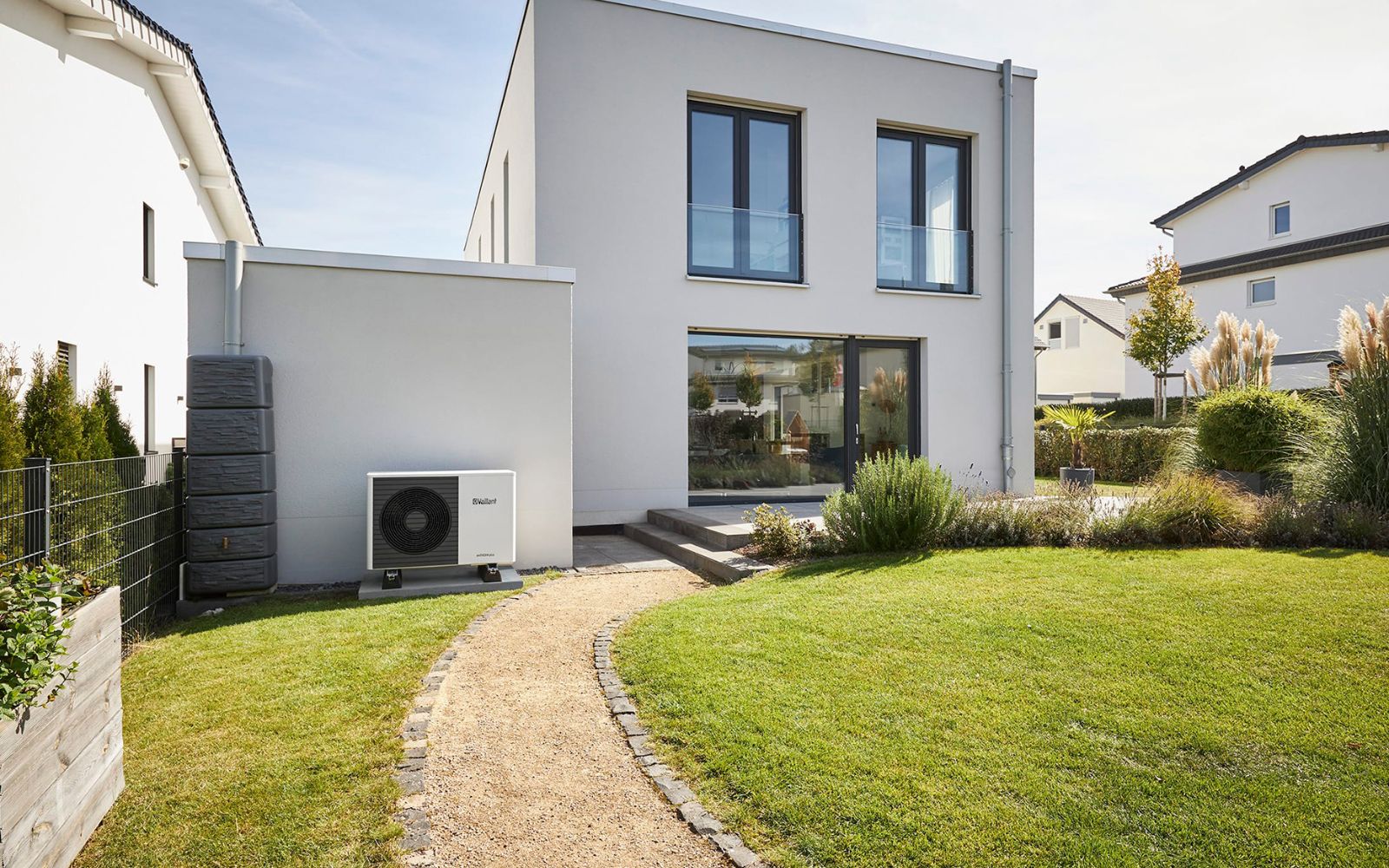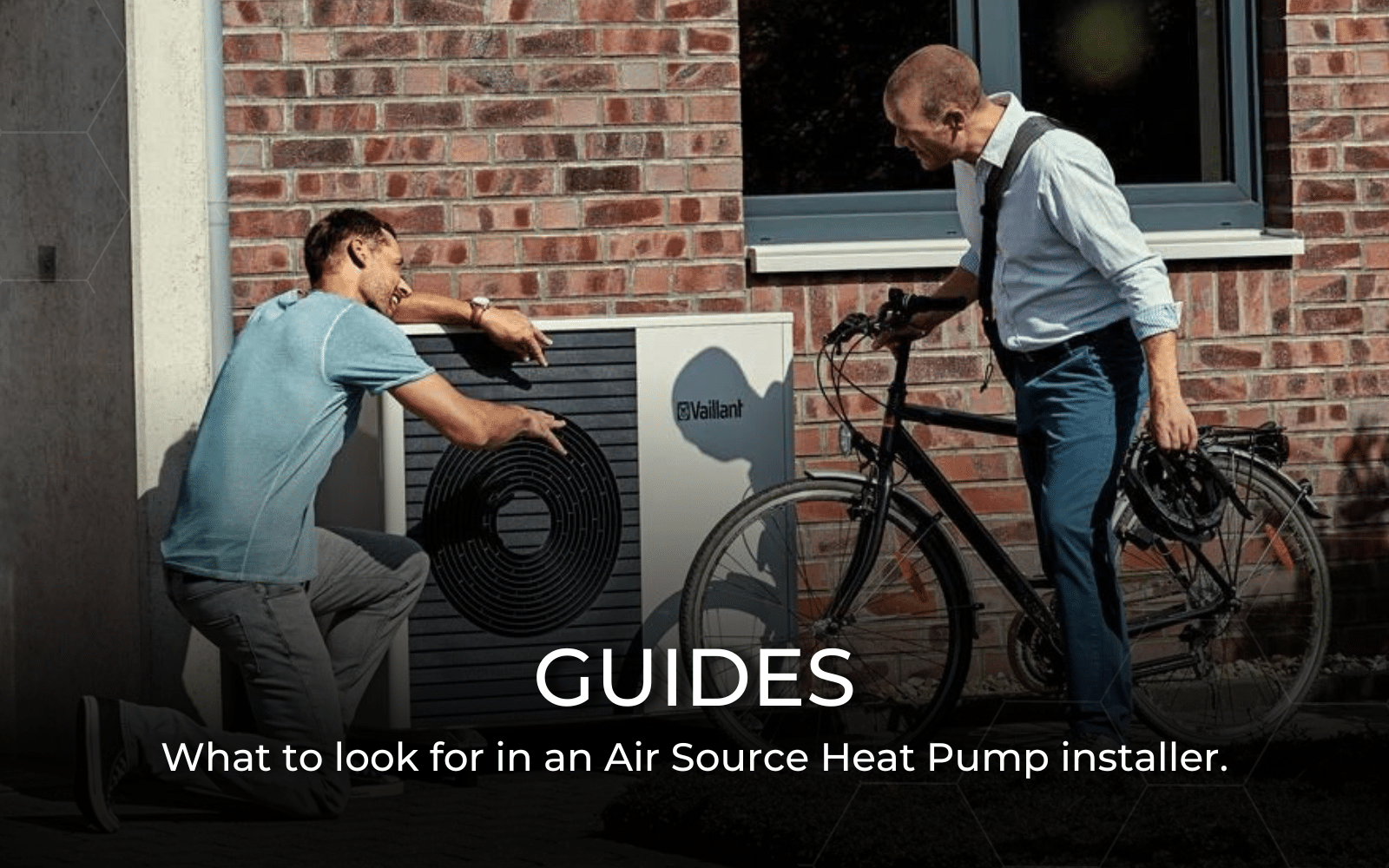The air source heat pump is the hot topic of the low-emissions world, with the technology being seen as the widespread successor to fossil fuel systems moving into the future.
They have been successfully deployed across Europe for decades now, performing at exceptional efficiency levels across the continent. The take-up hasn’t been so swift back at home, despite possessing milder climates than those of Sweden and Norway.
So, the question remains.. how well do heat pumps actually perform in UK homes? Is a hybrid solution the way forward? Let’s find out!
Installation.
The first step before looking at the performance of the heat pump, would be to look at the installation required when you decide to switch from carbon-based heating such as gas. One of the most important things is to work out if the product is the correct one for your home.
Heat From Air’s very own free-heating survey is designed to do just that!
As part of the survey, it is important to understand and anticipate all and any heating needs, so talking to our prospective customers is an important part of our process. Heat-loss calculations balance the amount of energy needed to overcome the heat loss through the fabric of your home. Every home is different and we understand there is no one size fits all solution.
An air source heat pump works on the premise of taking in air, extracting the heat, sending that heat into a refrigerant, and generating more warmth through compressing said refrigerant.
One of the bigger takeaways was aside from the emission capabilities from the heat pump is its ability to work in sub-zero temperatures better than previously thought. A study found as temperatures started approaching -30C, far beyond anything that would be experienced in the UK, heat pumps routinely outperformed oil and gas heating systems, effectively dispelling rumours that the systems wouldn’t work in the colder months! Check out Scandinavia as the perfect example.
Even when temperatures dipped slightly below zero, heat pumps didn’t just outperform legacy fossil fuel systems, they were shown to be between two and three times more efficient than oil and gas heating systems.
BOOK YOUR FREE SITE SURVEY!
Should You Go Hybrid?
Following months of research and customer feedback, various products have been launched that is set to play a major part in reducing carbon emissions.
Hybrid heat pump solutions are the perfect blend of technological innovation and familiarity. It’s a system designed to transition UK homes to a greener, more sustainable heating method at a pace that is beneficial to all of us.
The hybrid heating system integrates a heat pump with your existing gas boiler and delivers complete heating confidence (and warmth), delivering a consistent comfortable temperature all year round.
Heat pump efficiency is measured by the device’s coefficient of performance (COP). This is calculated by the amount of input compared to the amount of output. For example, if a heat pump uses one kW of electricity to produce four kW of heat, the CoP is four.
The higher the CoP, the more efficient the heat pump is. Heat Pumps regularly can exceed 300% efficiency in ideal conditions, whereas combustion boilers will never exceed 98%.
Addressing Concerns.
More than 80% of households that have replaced their gas boilers with an electric heat pump are satisfied with their new heating system, according to the first major survey of heat pump users.
Two-thirds were satisfied without energy efficiency upgrades. The survey also found high satisfaction levels of those in Victorian or older properties, usually those with less insulation were at 83%, which contradicts concerns that heat pumps are only effective in modern buildings or those that have undergone extensive energy efficiency upgrades.
A heat pump will no doubt perform at a higher level if installed in a well-insulated home, this behaviour is no different to any other type of domestic heating, as the less heat that can escape means the more efficiently the household would be heated.
Alternative Uses for Air Source Technology.
If the Heat From Air free heating survey decides a heat pump isn’t suitable for your property then air source technology can still be utilised in different ways.
It’s a very efficient way of heating water for use in showers, baths, sinks and pretty much anything else you use hot water for.
Hot water is something we require 365 days a year. Whether it is for washing or cleaning, it is something we all need. This is why an air source water heater is an excellent way to utilise air source technology. Air source water heaters can be two to three times more energy efficient than a conventional water cylinder!
Financial Incentives.
The UK government offers several incentives to encourage the adoption of heat pumps, such as The Boiler Upgrade Scheme (BUS), which provides financial support to homeowners who install renewable heating technologies in place of an existing fossil fuel system. This incentive can help offset the initial installation costs, making heat pumps a more attractive option. The Boiler Upgrade Scheme offers a £7,500 grant to those that are viable.

Cost Considerations.
While the initial cost of installing a heat pump can be higher than traditional heating systems, the long-term savings on energy bills and the potential for government incentives can make it a cost-effective solution over time.
Final Thoughts.
Heat pumps are a suitable and sustainable heating solution for many UK homes. They offer significant energy savings, environmental benefits, and versatility for year-round comfort. With the UK’s commitment to reducing carbon emissions, heat pumps represent a forward-thinking choice for homeowners looking to invest in greener energy solutions. So, are heat pumps suitable for UK homes? We think so!
If you want to take advantage of renewable heating, just contact the friendly team at Heat From Air and we will handle everything for you. Follow our journey on LinkedIn and Instagram too for handy tips and tricks.
Your green future starts here!
Get in touch to receive your FREE site survey!
Article Content
WANT TO SAVE £7,500?
Recent Articles:
Newsletter Sign Up
Keep up to date with latest news and industry insights.





